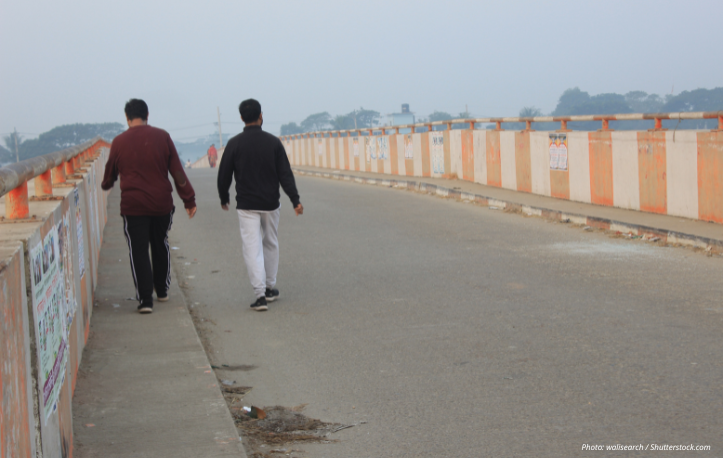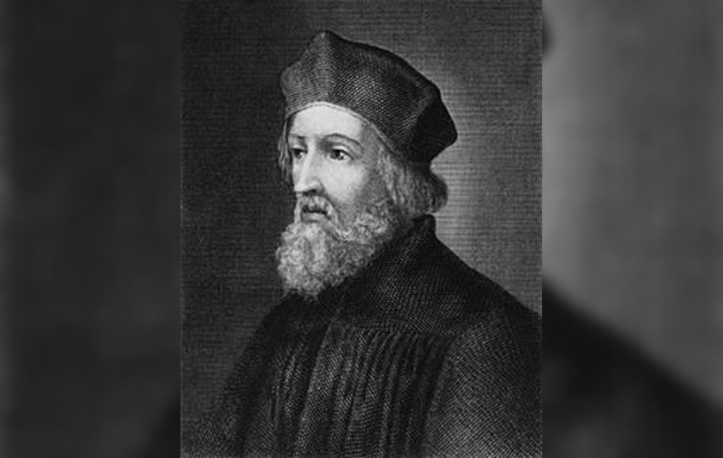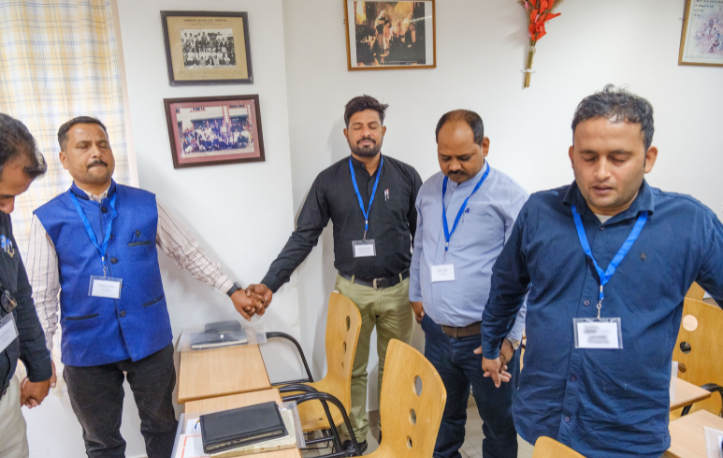Emaan was passionately devoted to Islam.
“I used to love the person of Mohammed,” she said. “I wished in my heart that I was living in antiquity and that maybe I would be chosen to be one of his wives.”
She took six pilgrimages in the early 2000s, travelling from her home in Egypt to visit Islam’s most holy sites. “At the mosque in Medina, the ‘Mosque of the Prophet’, I would never turn my back,” she recalled of one hajj, a religious journey to Saudi Arabia that Muslims are required to make at least once.
As a fervent adherent of the faith, Emaan went far beyond what was required by Islam. “When I went to walk away,” she said, “I would look at [the mosque] in reverse and walk backward to show respect.”
But eventually, Emaan chose to walk away from Islam. When she learned that Aisha, Mohammed’s last wife, was nine years old at the time of their marriage, it shook her faith. As her own daughter approached that age, Emaan was struck by the inappropriateness of Islam’s founder taking a child bride.
“It triggered a deep desire in my heart to question his personality, his character, and to search for who he really was,” she said. “I could not accept that from a regular person, let alone a prophet, a teacher. It was abhorrent to me.”
When Emaan shared her concerns with her husband, he was shocked by her scepticism and warned her against blasphemy. Still, Emaan kept searching for answers, hoping to resolve the tension in her heart.
A Transformed Life
Early one morning, Emaan had a dream in which a woman led her to a man whose face radiated light. The shining figure was holding a book in a language she did not recognise, but she could somehow understand it.
Titled “The Names of God”, the book listed many of God’s attributes. As she looked at the words, all the names melded into just one — I AM.
Emaan shared the dream with her husband, but he told her it was satanic.
Then, one day Emaan and her husband had a new satellite TV dish installed. While Muslim technicians usually filter out Christian channels, this one didn’t. Emaan started watching Arabic Christian programmes and began to find the answers she had been seeking. After obtaining a Bible of her own, she spent the next four years comparing Christianity with Islam. Over time, she rejected Islam and placed her faith in Christ.
When Emaan’s husband learned of her Christian faith, he exploded in anger. “He became like a beast, really, a wild beast,” she said. “He used to do harm to me and beat me, and when he would get tired, he would request his parents send people to come and do me harm.”
Emaan’s husband sometimes locked her in a room for days, separating her from their young, crying children. He hit her with household items, including a large video player that he smashed on her head. The beatings, which continued for years, came close to killing her on several occasions.
Emaan endured the barbaric abuse, but it caused deep physical and emotional wounds. When she finally filed for a divorce, government officials initially ruled against her because she was considered an apostate for abandoning Islam. But the divorce was eventually approved, and she was given custody of their children even though her own parents had testified against her because of her Christian faith.
After the divorce, Emaan began attending a Bible study, where she met a man named Abasi who was also a Christian convert from Islam. His family had tried to kill him with a large knife used to slaughter animals.
Emaan and Abasi later married and moved to a city near the Red Sea, where they began to rebuild their lives. Emaan worked as a hairstylist, while Abasi ran a clothing shop.
Danger by the Sea
Though Emaan and Abasi had been baptised as Christians, their official identification cards still classified them as Muslims. In Egypt, Christian converts from Islam are unable to obtain new government ID cards, so Emaan, her husband and their children were viewed with deep suspicion by some in the traditional Christian community who doubted the sincerity of their conversions.
To avoid being accused of proselytising Muslims, many traditional Christians won’t allow people in their churches unless they have a Christian ID card or an Orthodox-cross tattoo. The tattoos are commonly seen on the hands and wrists of Coptic Christians in Egypt.
Emaan and Abasi were committed to attending church even though they were harassed and sometimes physically assaulted by local Muslims and some in the traditional Christian community.
“I wanted my kids to live the Christian life and to grow in the church,” Emaan said. “Even though they were in danger, I wanted them to attend every Sunday.”
As word spread that these ‘Muslims’ who claimed to be Christians were attending church, someone secretly recorded a video of them receiving Communion and posted it online. After that, Muslims stopped coming to Emaan for her hairstyling services and warned others away from her husband’s clothing shop. They were forced to move their businesses repeatedly as one landlord after another revoked their leases, and Abasi’s business soon failed.
Police arrested Emaan and Abasi at one point, after Muslims complained about their Christian conversions. The authorities detained Abasi for three days, even threatening to kill him.
Their children also faced persecution. Nermeen, their teenage daughter, was forced to wear a hijab while attending school. She and her brother were taunted, bullied and sometimes beaten at school and in their neighbourhood.
Emaan finally removed her son from the school and sent him to a monastery for a year. But when their daughter was kidnapped, they reached their breaking point.
Several Muslim students abducted Nermeen and took her to a remote area. They beat her and tried to get her to recant her Christian faith, but she refused. “She said she was a Christian,” Emaan recalled. “Then she lost consciousness, so they thought she had died.”
When Nermeen regained consciousness, she was alone in the desert. Fortunately, a passing tourist bus picked her up.
After Nermeen’s abduction, Emaan and Abasi decided to leave the country. They went to the airport trusting that the Lord would provide a way for them to leave.
Exodus from Egypt
The Coptic Orthodox Church had provided them with a letter stating that they had been persecuted and needed to leave Egypt for their safety, but they received no governmental help and had no travel visas. As an immigration official at the airport questioned them about why they were leaving the country, their youngest child began screaming uncontrollably. The child’s tantrum was apparently so irritating that the official finally let them pass. “That never happens,” Emaan said. “It was a miracle.”
The family settled in Lebanon, where they arrived with little money and no friends or contacts. But they soon found a vibrant church that helped provide for them and connect them to the global body of Christ for additional support.
Emaan grew as a Christian at the new church, and she gradually forgave those who had mistreated her, especially those trapped in Islam. “I learned to love those Muslims who used to really insult, torture and hurt us,” she said.
Emaan and her family have few earthly possessions, but she remains joyful despite their difficult financial situation. “We have satisfaction in [Christ],” she said. “We are content to have nothing. Our life with Christ is so beautiful.”
Emaan and Abasi lead several small groups, ministering to Muslims whom she now views with compassion. “It was a very hard life, very dry, like death,” she said of her former Islamic beliefs. “If you have everything but you don’t have the blessing [of Christ], you cannot be a blessing for those in darkness.”
Having escaped from the darkness herself, today Emaan is determined to point her Muslim neighbours toward the light of Christ.




Submit a Prayer